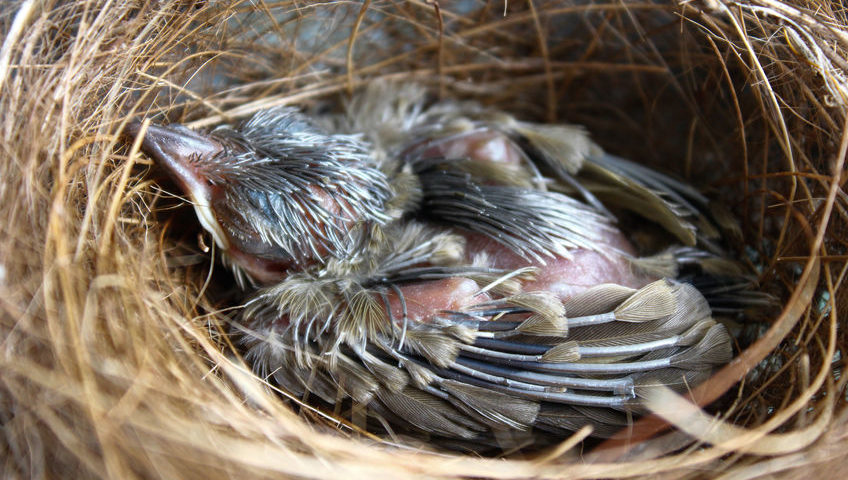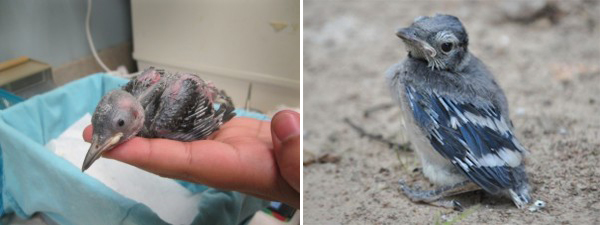
It’s not uncommon to come across a baby bird out of their nest. Many times, folks find these seemingly orphaned avians in their backyards, on their balconies or during a jog. While the instinct for many is to save the poor feathered fellows, they may end up causing further harm to the baby bird because they were not handled properly. So what should you do if you find a baby bird?

Identify
According to the Texas Wildlife Rehabilitation Coalition (TWRC), we should first identify whether the baby bird is a nestling or a fledgling.
- Nestlings: At this stage, the bird has very little or no feathers and still largely relies on its parents for warmth.
- Fledglings: These little birds have feathers, short tails, their eyes open and are capable of moving away from you.
Nestlings
If you know where the nest is, the best thing to do is place the baby bird back in it. Remember to take precautions and use gloves when handling wildlife. These interactions can be extremely stressful to the bird, so it is advised to cover the bird with a light cloth or towel when relocating it. If the nest is destroyed or it has fallen, you can make one out of a small basket or plastic container. Remember to punch small holes if using a plastic container! Refrain from feeding it insects or giving it water. Once the baby bird is secure, walk away and observe from a distance – your presence may deter the parents from returning.
Myth: Parent birds will abandon a baby bird that was touched by humans.
Fledglings
If the baby bird appears to be a fledgling, then relax. Fledglings jump out the nest on purpose to practice jumping and fluttering their wings. Most species of songbirds actually leave the nest even before they can actually fly. They will stick close to the ground for a week or two and gradually make short hops until they reach a tree’s branches. They will keep on hopping from branch to branch until the hops get longer and the baby bird learns to fly.
You may be tempted to return a fledgling to its nest, but you could be interrupting a valuable lesson for the baby bird that is crucial to its survival. It is better to leave it alone, unless an immediate threat from another animal is apparent. When in doubt, remember that a baby bird’s best chance of survival is its parents. If the bird is injured, or you are sure it is an orphan, then it is advised to contact your local wildlife center.
Do not “rescue and keep” wildlife as a pet. Special permits are required and it would be against the law to keep one in your home without a permit. After all, caring for an animal like this is nothing like caring for a venus flytrap.
Information provided by: www.twrcwildlifecenter.org




